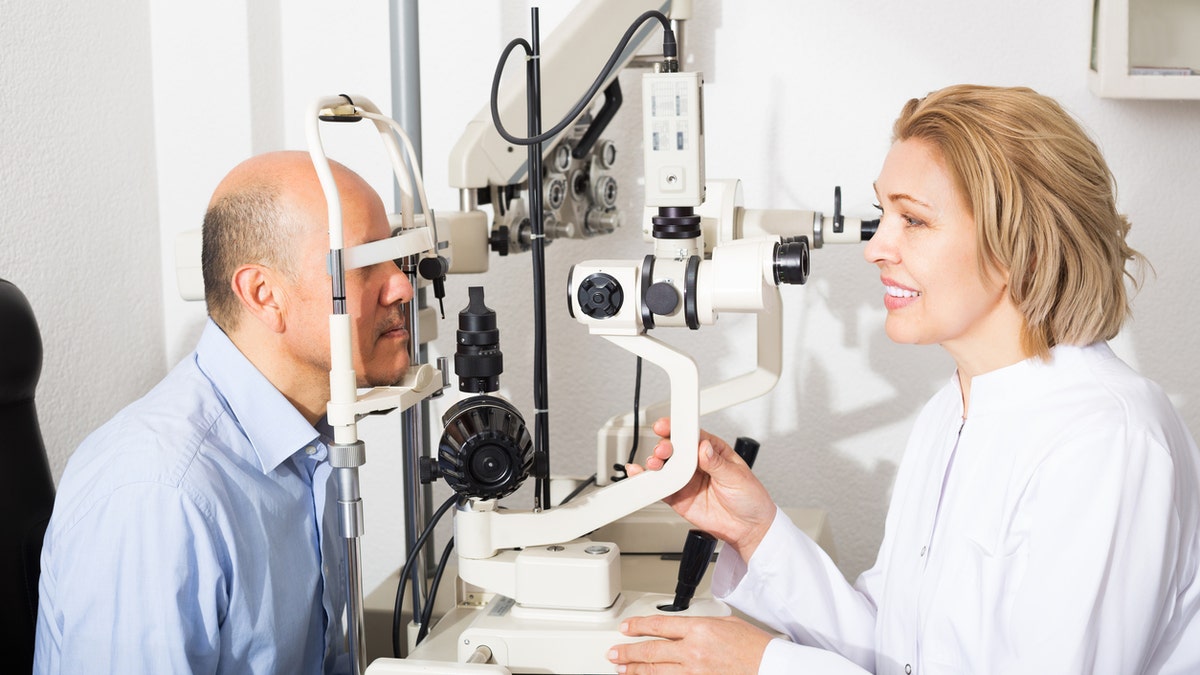
Your eye doctor can spot several problems that might easily slip out of your general doctor’s notice. (iStock)
I just got new glasses -- without going to an optometrist.
It's another innovation made possible by the internet.
Going to an optometrist can be a pain. You have to leave work, get to an optometrist's office, sit in a waiting room and then pay an average of $95 (in my town). But I got a prescription for just $50 -- without leaving my computer.
This is possible thanks to a company called Opternative ("optometry alternative"). The company claims its online test is just as good as an in-person eye exam.
I was skeptical. It's over the internet! How can a computer replicate what optometrists do in their offices with impressive-looking machines?
"This is the beauty of technology," answered Dick Carpenter, director of strategic research for the libertarian law firm the Institute for Justice.
Carpenter researched Opternative's test and concludes that it is just as good as an in-person exam. "Sometimes better, some research has indicated."
Here's how it works: First, you answer some medical questions.
Then, while holding your cellphone, you follow prompts on the phone while looking at your computer screen, selecting which lines look sharper, or which numbers you see.
One day later, they send you a prescription. Mine exactly matched the prescription I got from my ophthalmologist, a medical doctor who charges much more.
Fast, cheap, and easy.
So naturally, optometrists want this alternative banned. "This is really foolhardy and really dangerous," said former American Optometric Association president Andrea Thau on "Good Morning America."
She wouldn't do an interview with me. Nor would anyone else from her Association -- despite our sending them emails for a month.
I assume they knew I'd mock them for trying to ban the competition. Which they are trying to do. They wrote the FDA that the at-home test "should be taken off the market."
What they're really saying is that patients should not have the right to make any choices in their own vision care.
The optometrists are bottleneckers. "Bottleneckers: Gaming the Government for Power and Private Profit" is the title of Dick Carpenter's new book. He studies how established professionals use government to limit competition.
Cosmetologists get laws passed that force hair-braiders to spend $5,000 on useless courses and tests. Restaurants limit food trucks. Established florists ban newcomers. Optometrists want to ban Opternative's test.
Bottleneckers like them have clout in legislatures because their lobbyists give politicians money. They persuaded 13 states to draft bills that would ban at-home tests.
In South Carolina, then-Governor Nikki Haley vetoed the ban, correctly calling it anti-competitive. But the legislators were beholden to the optometrists' lobby; they overrode her veto.
The optometrists say that a home test is too risky because no doctor is there to look for diseases. I confronted Opternative's spokesman about that. He said the test's questionnaire filters out sick people by asking questions like: "Any health conditions? ... pregnancy, nursing, diabetes ... Any medication that affects your vision? ... Sertraline, Amitriptyline...?"
Obviously, a questionnaire is not as good as a doctor. But it does screen out some people. Opternative rejected me the first time I tried. I then lied about my age to test their service.
I don't recommend lying on medical forms. But a cheap internet prescription is not much of a threat to public health.
Barbers claim an unlicensed barber might give you a bad haircut or cut you.
Florists say an unlicensed flower arranger might spoil your wedding.
The optometrists at least have a better argument: The at-home eye test might miss a disease.
But I say we consumers should get to choose what risks we take.
I choose to go to an ophthalmologist because I can afford it, and at my age, I want a glaucoma test.
But many young people don't want to spend that money. And many people just don't have time. That's probably why lots of Americans never go to any eye doctor, ever. Opternative at least gives them an alternative -- a way to get a prescription without going to a doctor.
It's good to have a choice.
